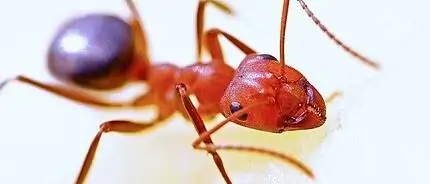You might think that estimating the weight of an ox, as described in Part 1 of this article, is hardly a complex task. But the mechanisms mentioned can be used to solve far more complex problems in the field of logistics. These are three categories of problems that we typically face in management:
- coordination problems
- forecasting problems
- cooperation problems
In coordination problems, employees, managers and entrepreneurs have to perform a challenging coordination task. How do companies organize their joint actions? How do you create a powerful operational and organizational structure? How do you get innovative products to market as quickly as possible (time to market)? How do you coordinate supply chains so that everyone involved in the chain comes out with added value? How can numerous internal and external processes be interlinked so that losses at the interfaces between areas, departments or companies are minimized? Swarm intelligence, which we can observe so beautifully in ants, among other things, is ideally suited to these complex questions.
The second major challenge, forecasting problems, involves cases for which, by their very nature, there can be little or no expertise: How many pairs of shoes of the new model in question can be sold in the next season? What is the probability that the latest health product will be approved? What quantities of a particular raw material will be needed in the next few years? How many customers will want to buy the new car model? These are questions, therefore, to which there may be or could be several correct answers, but for which some answers are better than others.
Where previously – before the discovery of swarm intelligence – a few “chosen so-called experts” made the decisions, the “knowledge of the many” is now used, the swarm.
Finally, the cooperation problems: as the name suggests, these are problems in which the interaction of many people plays a dominant role in achieving an – emergent – overall performance. It is not the isolated and sometimes selfish self-interest that leads to the overall success of the company or the supply chain, but the collective action of many individual participants along the supply chain. In this context, I would like to refer to my book “Supply Chain Management. How to survive in the 21st century with networked thinking (published by FAZ-Verlag), which focuses on cooperation problems. How should we proceed against environmental pollution and social abuse? How do you get the parties involved in a supply chain to sit down at the same table? How do you get numerous companies to cooperate in a way that adds value? How can you “create” products and services in such a way that waste along the supply chain is minimized or even avoided?
Does this mean that the collective performance is always greater than the individual performance – even of experts? Of course not. But, as already mentioned, there are numerous problems that can be solved better with the methods of swarm intelligence than with supposedly outstanding individuals. Thus, we can answer the initial question, what managers can learn from ants, with some agitation but also some relief:
The management of the future, the manager of tomorrow, must create the conditions in the company so that the unexpressed potential, the power of the swarm, can be discovered and used to the advantage of all involved. Thus, the new manager, the manager of tomorrow, is above all a manager of groups, teams and swarms.
You can find the first part of this article at Swarm intelligence – What we logisticians can learn from ants – Part I. You can find more information in the article Ant algorithm.
